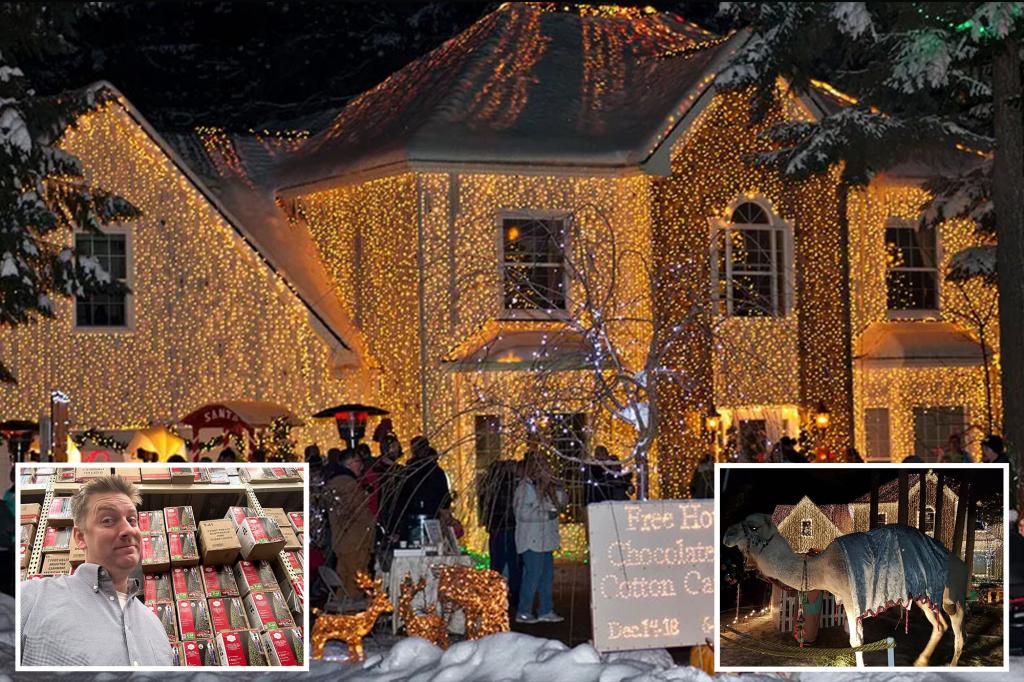Jeremy Morris, self-proclaimed “Christmas Lawyer,” has petitioned the Supreme Court to review his long-standing dispute with his former homeowners association over his elaborate Christmas light displays. This legal battle, which began in 2015, has garnered international attention and centers around Morris’s contention that the HOA discriminated against him based on his religious beliefs. The dispute originated when Morris, after hosting a successful Christmas light show at his previous residence, informed the West Hayden Estates Homeowners Association of his intention to replicate the event at his new home. The HOA immediately expressed concerns, citing potential violations of community rules related to size, noise, and brightness, and raising the question of whether the display might offend non-Christians. Morris countered, arguing that the HOA’s concerns were unfounded and constituted religious discrimination.
The conflict escalated as Morris proceeded with his preparations, adorning his house with hundreds of thousands of Christmas lights. The HOA’s attorney threatened legal action if the event proceeded without board approval, but Morris refused to back down. His extravagant display, featuring musicians, a children’s choir, a live nativity scene, and even a camel, attracted thousands of visitors, requiring shuttle buses and volunteer traffic management. Tensions mounted in the following year, with allegations of neighbor harassment and threats against Morris and his family. Seeking to avoid litigation, Morris offered to forgo legal action if the HOA agreed to cease its interference. However, the HOA declined his offer, prompting Morris to file a lawsuit in 2017 alleging religious discrimination under the Fair Housing Act.
A jury unanimously sided with Morris, awarding him $75,000 in damages. However, in a surprising turn of events, Judge B. Lynn Winmill overturned the jury verdict and ordered Morris to pay the HOA over $111,000 in legal fees. The judge concluded that the case was not about religious discrimination but rather Morris’s violation of neighborhood regulations. This decision was partially upheld by a three-judge panel of the 9th Circuit Court of Appeals, which affirmed the overturning of the jury verdict while acknowledging evidence suggesting the HOA’s actions were partially motivated by Morris’s religious expression. The 9th Circuit’s ruling opened the door for a new trial, but Morris opted instead to appeal to the Supreme Court.
Morris believes his case warrants the Supreme Court’s attention, arguing that it involves fundamental constitutional rights, including the right to celebrate Christmas according to his faith, the right to express his faith on his property, and the right to have a jury verdict upheld. He is optimistic that the justices will be receptive to his arguments and has secured potential legal representation for his appeal. The HOA, however, maintains that it did not discriminate against Morris and has consistently fostered an inclusive environment for all residents. The HOA’s attorney argues that the case, being an isolated dispute, doesn’t merit the Supreme Court’s intervention, given the sheer volume of cases the Court receives annually.
The Supreme Court’s decision on whether to hear Morris’s case holds significant implications, not just for the parties involved, but also for the broader legal landscape surrounding religious expression and homeowners’ association regulations. A ruling in favor of Morris could strengthen protections for religious displays on private property and limit the power of HOAs to restrict such expressions. Conversely, a ruling against Morris could embolden HOAs to enforce regulations that may incidentally impact religious practices, potentially chilling future displays of faith in residential communities. The case also highlights the ongoing tension between individual liberties and community interests, a central theme in many legal disputes involving homeowners associations.
This case underscores the increasing prevalence of homeowners associations in American life and their role in shaping the character of residential communities. Idaho, where this dispute originated, has a significant percentage of its population residing in HOA-governed neighborhoods, reflecting a national trend. As HOAs become more ubiquitous, the legal boundaries of their authority and their impact on residents’ rights, especially religious expression, will continue to be a subject of debate and litigation. The Supreme Court’s decision, should it choose to hear the case, could provide much-needed clarity on these issues, offering guidance to homeowners, HOAs, and lower courts nationwide.

